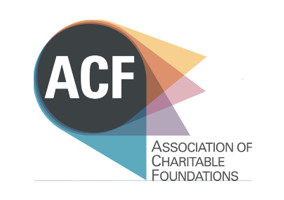More than a decade of austerity and a global pandemic have exacerbated and shone a brighter light on inequality in our communities. This is driving a growing demand for charitable services that has now reached levels rarely seen before.
In the past, funding from charitable foundations was more often the icing on the charity sector’s cake. It was “civil society’s risk capital”, more able to fund innovation and new ideas, be experimental and willing to learn from failure. Foundations are now more likely to be funding bread and butter services as the state withdraws and the number of people giving to charity declines. Previously, it would have been almost unheard of for a foundation to fund core public services such as libraries, food banks or legal representation. For many foundations, this is now becoming the norm.
As a result, foundation resources are increasingly precious – “civil society’s treasure”, as I once heard them called. They are also more competed for than ever, with many charities that previously relied on public giving or government contracts now turning towards foundations as a potential source of income. While the foundation sector’s own giving is on the rise and at a record high, this hasn’t been able to keep pace with demand. As a result, the proportion of charities applying for funding that are unsuccessful is increasing.
'Foundations must strive to be their best selves'
In this context, it’s more vital than ever that foundations strive to be their best selves. For the last three years, the Association of Charitable Foundations (ACF) has been working with our members to identify and promote 40 ‘pillars of practice’ through an initiative called Stronger Foundations – the largest foundation engagement project globally to date. More than 100 foundation representatives were initially involved in six working groups to identify what ambitious and effective practice looks like, across areas as broad as diversity, transparency, strategy, funding practices, impact and investment.
Over the last year, ACF members have been assessing themselves against the pillars. It turns out that foundations are harsh critics of their own practice, and more than willing to call themselves out for falling short of the high bar they aspire to reach.
Encouragingly, a new report published by ACF found that a growing number of our members are pursuing ambitious and effective practice, driven by a desire to make the most of their resources that are increasingly in demand. Accelerated by the turmoil of the last two years, foundations are seeking to strengthen their governance, be more transparent, reduce the burden on grantees and improve their staff and board diversity.
The report, ‘Becoming Stronger Foundations’, showcases more than 50 practical examples of how ACF members are putting into action the ‘pillars of practice’ from ACF’s Stronger Foundations initiative. More than half of the examples are from smaller foundations awarding less than £1m a year in grants, showing that no type or size of foundation has a monopoly on being ambitious and effective.
Pillars of practice
All foundations reported areas where they had further distance to travel, as well as at least one area where they felt they were at an advanced stage. Foundations were likely to consider themselves more advanced on issues related to funding practices, engagement and strategy. Most felt they were just getting started or making some progress in areas of investment and diversity, equity and inclusion (DEI), which were also the areas where foundations had the most ambitious plans for future progress.
Examples of actions shared by ACF members include encouraging anonymous feedback from grantees, offering more flexible funding, speaking in public about key issues affecting civil society, introducing targets for board diversity, publishing details about their investments and including people with lived experience in strategy development.
Pandemic emphasised the need for resilience
Our chief executive, Carol Mack OBE, commended the report to everyone working in the foundation sector: “Many ACF members have told us that the pandemic offered a stark reminder of why being a stronger foundation is so important. Perhaps more than ever, foundations are seeking to ensure that all their resources achieve as much impact as possible for the causes and communities they serve. Amid a pandemic that put unprecedented demand on their people and resources, foundations across the UK — from the very largest and most well-resourced, to those that are small and volunteer-run — continued to improve their practice and achieve even greater impact. This report celebrates these efforts and aims to inspire all ACF members to find ways to become stronger foundations in the years ahead.”
ACF hopes the report will inspire all foundations to pursue the Stronger Foundations pillars of practice. We’ve invited all our members to give the self-assessment tool a try and use it on an annual basis to measure progress towards becoming stronger foundations. It’s perhaps never been more important that they achieve this goal.
Max Rutherford is head of policy and practice at the Association of Charitable Foundations
Related articles












